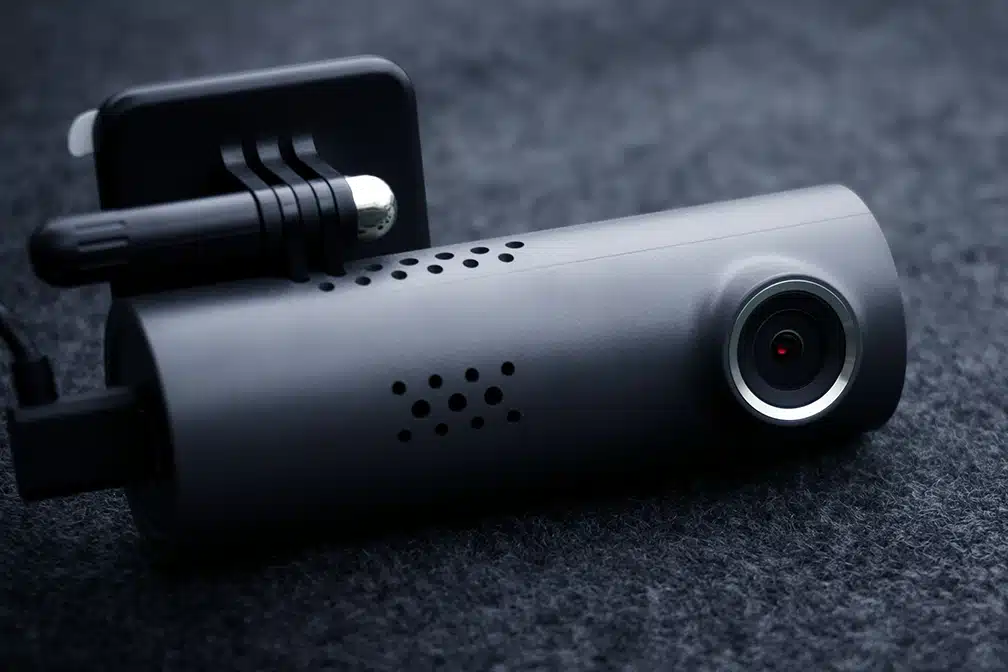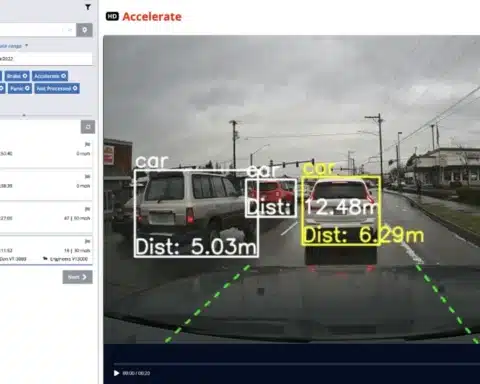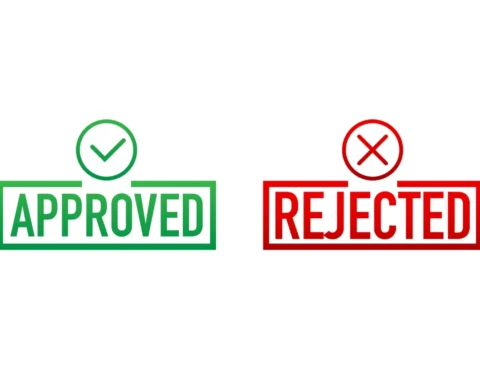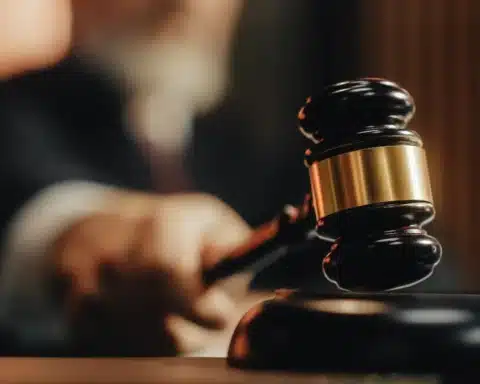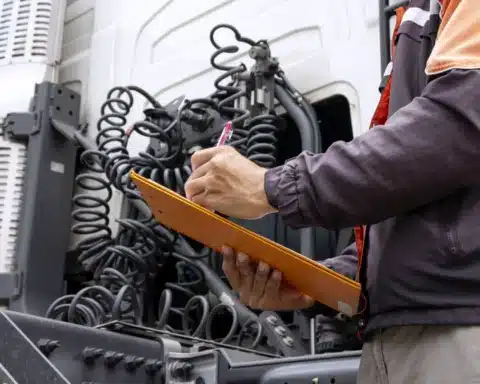In our fast-paced digital age, dash cameras have seamlessly woven their way into the lives of many. These unassuming devices, quietly recording our daily journeys, have left us pondering whether the footage they capture can wield influence within the hallowed halls of a courtroom. Picture this: you’re behind the wheel of your trusty truck, cruising down the open road, when suddenly, an unexpected merging of another vehicle leaves you with no choice but to slam on the brakes. The other driver claims you were the reckless one. The question arises: can the footage from your dash cam be admitted as evidence in court? The legal world of dash cam usage unveils itself.
In this article, we delve into the intriguing world of dash cam videos and how they can shape the outcome of legal battles. Whether you’re a seasoned trucker or a casual driver, understanding the potential legal ramifications of your dash cam recordings is crucial, and we’re here to shed light on this matter.
Is Dash Cam Footage Admissible in Court?
Dash cam footage typically finds itself admissible in court if it’s recorded in a public space and can be proven as genuine, originating from your camera and capturing the incident in question. However, the quality and content of the video play a pivotal role in its usefulness as evidence. If the video is grainy and of poor quality, it might fail to provide a clear perspective, rendering it ineffective in determining fault or identifying the parties involved.
To harness the full potential of dash cam evidence, the video quality must be top-notch. Research suggests that when dash cam footage is relevant to a claimed incident, it often holds weight as trustworthy evidence, strengthening one’s defense. Nevertheless, effective utilization of dash cam footage in court comes with certain prerequisites. For instance, it’s essential to establish that the footage corresponds to the time of the incident under scrutiny.
Moreover, you must prove that the recording indeed stems from your dash cam. In specific scenarios, your attorney may legally request dash cam evidence through a subpoena.
While some jurisdictions may raise obstacles to the use of dash cams, the vast majority of states recognize their significance as evidence in both civil and criminal cases. However, if the footage has undergone unauthorized edits or tampering, a judge may rule it as inadmissible, shifting the focus away from the legitimate use of dash cam evidence.
Are Dash Cams Legal in the USA?
Indeed, dash cams are legal in most states across the United States. However, it’s essential to note that because dash cams serve as surveillance tools, their usage may be subject to various dash cam laws. One crucial factor that may be used against you when presenting dash cam footage is privacy violation, an aspect that certain jurisdictions closely monitor. As per dash cam footage laws, these devices are primarily intended to record external events around your truck or car. Nevertheless, some dash cams also capture interior footage of the vehicle.
This audio recording could prove instrumental as evidence in situations where determining fault in a vehicular collision falls to a judge or jury. Dash cam footage laws in the USA aim to legally use footage from trucks and fleets as evidence. Consulting with your attorney, who has a better grasp of dash cam laws, is advisable, as there’s always a possibility that a video might reveal questionable behavior that could be detrimental to you.
Conversely, providing law enforcement with dash cam footage can aid them in their endeavors to locate or prosecute individuals involved in criminal activities such as hit-and-run accidents, vandalism, or theft.
When Is Dash Cam Footage Necessary for Court Submission?
If you’ve suffered injuries in a car accident and are contemplating filing a personal injury claim to secure damages, obtaining and preserving compelling evidence is paramount. Dash camera videos serve a significant purpose in settling insurance claims, as they substantially enhance your chances of receiving a successful claim. Without concrete proof, obtaining the compensation you deserve can be an uphill battle.
Recent trends show that a growing number of accident victims already possess documented images or videos of the vehicular collision that caused their injuries when they seek legal assistance. While dash cam footage laws in the United States may not pose identical challenges, having convincing video evidence of an accident goes a long way in substantiating your claim.
Here are some examples:
1. The Negligence Scenario: A vehicle ahead of you swerves dangerously, with a passenger alerting the driver, “Watch out for that blue car! He’s driving recklessly, so maintain a safe distance.” This information suggests the presence of a careless motorist ahead, potentially weakening the plaintiff’s ability to make damage claims in jurisdictions where the plaintiff’s liability directly affects the recoverable damages.
2. Use of Phone: During a conversation, the driver remarks, “I just heard my phone buzz. Could you please hand it to me so I can see who messaged me?” Shortly thereafter, an accident occurs. This conversation might indicate that the driver was texting while driving, a crucial detail in determining the accident’s cause. Dash cam footage proves pivotal in clarifying the timeline of events and establishing responsibility.
Dash Cams, Privacy, and Consent
Dash cam recordings extend their utility beyond personal automobiles, especially in fleet management operations, where they enhance driver safety and operational efficiency. However, there are crucial considerations regarding Dashcam legality.
In 16 states, securing two-party consent for audio recordings is mandatory, meaning that consent from all parties involved is required before initiating the recording. Notably, these regulations apply to populous states like California, Illinois, and Massachusetts.
In contrast, the remaining states require only one-party consent for the legal use of dash cams, meaning you don’t need permission from others before recording audio. It’s worth mentioning that in jurisdictions with two-party consent requirements, dash cam court evidence may be excluded if it contains audio.
Dash cam footage laws are subject to change, so consulting with an attorney for the most up-to-date advice is wise.
Recording videos in public places is generally considered both legal and safe. The prevailing belief is that individuals surrender their right to privacy when they enter the public domain. Consequently, dash cam footage, particularly recordings from truck dash cams, is frequently admissible evidence in courtrooms.
Dash Cam Footage – Beneficial or Not?
Dash cam footage can potentially work against you if it captures any illegal activities or behaviors that contributed to an accident. Therefore, it’s advisable to seek legal counsel before sharing such dash cam videos with anyone. Even when another party’s actions appear to be the primary factor in an accident, dash cam legality could potentially be used against you in a legal context if it reveals your involvement in activities like speeding, making improper lane changes, or other actions that could have played a role in the incident.
If the opposing party learns that your reliable dash camera was in use, they can formally request law enforcement or the court to secure and preserve the footage. Under dash cam laws, erasing dash cam footage after an accident may be viewed as an attempt to conceal evidence, a move that can lead to serious consequences. In certain circumstances, such actions may even result in criminal charges, specifically for tampering with crucial evidence.
The dash cam legality system can employ a subpoena to obtain the entire dash cam footage, and any attempts to alter or manipulate this footage may result in additional legal consequences and heightened liability.
Why Get a Dash Cam for Your Fleet?
In essence, a dash cam can serve as a vital tool in the aftermath of an accident, much like a store’s CCTV camera can capture a customer’s slip-and-fall incident. If any issues surrounding liability arise after an event or
if the insurance settlement offer appears inadequate, dash cam footage can be your ace in the hole.
Your attorney will carefully scrutinize the material and aim to maximize your compensation while minimizing your liability using dash cam footage law. It’s advisable not to share dash cam footage with any insurance company, law enforcement agency, or other parties until your legal counsel has reviewed it.
Dash cam law can work in your favor. Video evidence carries immense value in personal injury litigation and can be decisive for both plaintiffs and defendants. Even if your case doesn’t proceed to a full jury trial, dash cam footage or photographic evidence can prove invaluable during insurance company negotiations.
The inclusion of compelling evidence enhances your chances of a favorable outcome and exerts pressure on the insurance company to extend a fair and just settlement offer. Dash cam legality ensures that your recorded footage finds its place in the legal arena. Moreover, dash cams contribute significantly to driver safety.
Conclusion
If you’re a truck driver and an accident involving one of your drivers might lead to a courtroom battle, dash cam videos can be your trusted ally. They play a critical role in determining liability and vindicating your driver’s innocence. Dash cam legality treats dash cam footage similarly to other forms of photo or video evidence. To ensure its reliability, dash cam footage must remain unaltered. Additionally, it’s crucial to acknowledge that dash cam footage can be open to interpretation, with different individuals, including experts, holding varying perspectives on its contents.
In the realm of truck driving, dash cams are more than just silent observers; they are valuable tools that can protect your rights and ensure justice is served. So, if you haven’t already, consider adding a dash cam to your truck for added security and peace of mind on the open road. Remember, the road may be unpredictable, but with a dash cam by your side, you’ll have a reliable witness to any unexpected events that may occur.
